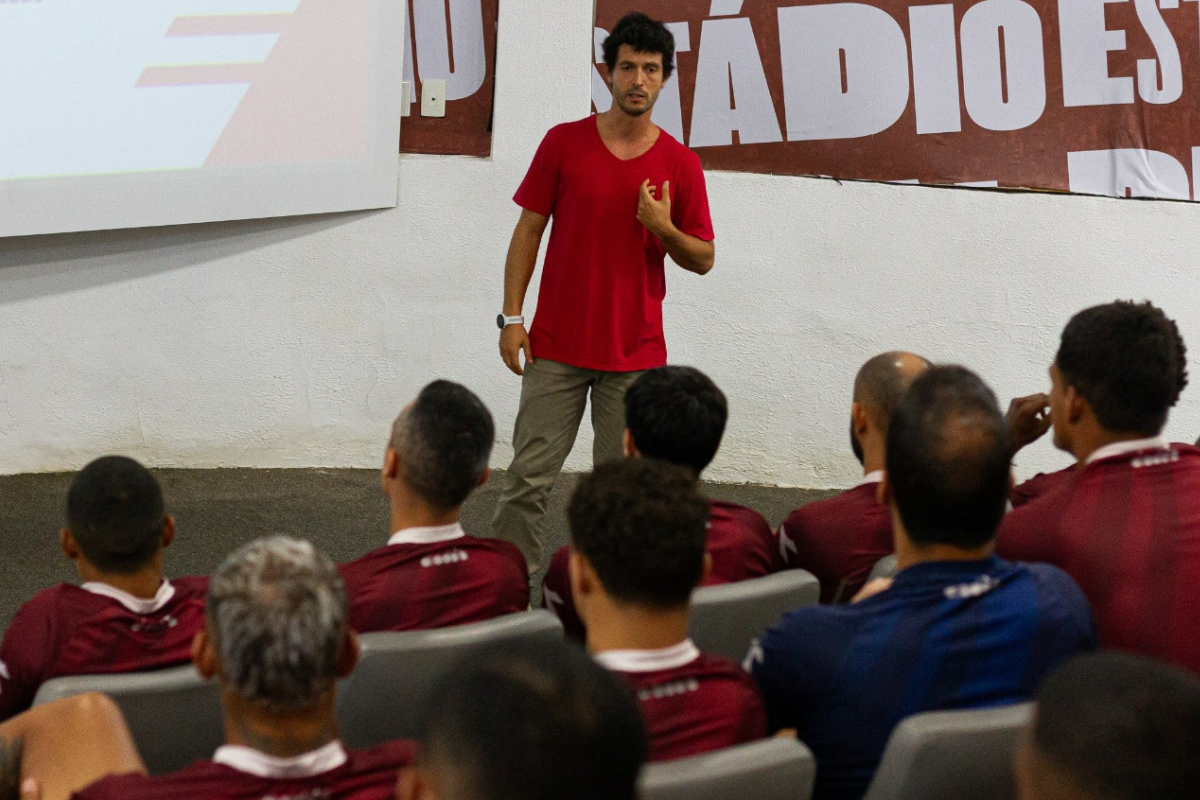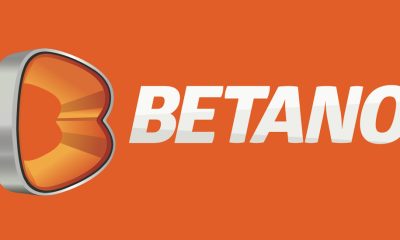Compliance Updates
Gold Rush Amusements, Inc. Files Counterclaim Alleging Violation of Illinois’ Anti-Inducement Law

Daniel Fischer, the principal owner of the Dotty’s chain of video gaming cafés in Illinois, who is also involved in bids for new casino licenses in Rockford and Calumet City, paid just $2 million in 2018 to expand his network by purchasing 63 lucrative Stella’s and Shelby’s video gaming establishments, according to a newly disclosed counterclaim filed by Gold Rush Amusements. At the same time, Midwest SRO, LLC, a terminal operator that already serviced Dotty’s establishments, allegedly paid an additional $44.5 million to Stella’s and Shelby’s owners as part of a calculated sham transaction. The filing alleges that Midwest SRO’s payment violated the Illinois Gaming Act because it constituted an improper inducement to replace Gold Rush as the terminal operator in 44 of the Stella’s and Shelby’s locations.
Disclosure statements filed last summer with the Illinois Gaming Board identified Gordon Sondland as holding an interest of five percent or more in Illinois Café and Service Company, LLC (ICSC), Fischer’s company that owns the Dotty’s chain in Illinois. Sondland, an Oregon hotel developer who recently served as President Trump’s Ambassador to the European Union, was a key witness who changed his testimony in the President’s impeachment proceedings.
The newly disclosed court documents resulted from a Cook County judge’s order lifting confidentiality designations that had previously hamstrung Gold Rush Amusements, Inc., and its executive Rick Heidner from knowing and revealing the details of the alleged sham transaction involving ICSC, Midwest SRO, and Laredo Hospitality Ventures, LLC, the parent company of Stella’s and Shelby’s. The ruling allows Gold Rush and Heidner, for the first time, to fully learn and publicly disclose the details of the transaction, including the allegedly improper inducement paid by Midwest SRO, a Gold Rush competitor.
“Gold Rush has compelling evidence that the Transaction was the culmination of a multi-year, concerted effort between and among Midwest SRO, ICSC, and Laredo (and their principals) to replace the Gold Rush Contracts with contracts benefitting Midwest SRO,” Gold Rush alleges in the newly unmasked court document.
Under state law, establishments and terminal operators must equally split 67 percent of a machine’s profits, while the remaining one-third goes to state and local taxes. In fiscal year 2019, Illinois’ 32,000 video gaming terminals yielded nearly $1.6 billion in net revenue.
A nine-page ruling lifting the document’s confidentiality on March 13 by Cook County Circuit Associate Judge Sanjay T. Tailor also favors the public’s right of access to court documents.
“Equity demands that Gold Rush be permitted to publicly make its claims of wrongdoing against the Establishments and Midwest, and their respective principals, just as the Establishments and Midwest have publicly made their claims of wrongdoing against Gold Rush,” Judge Tailor wrote.
The ruling involves Gold Rush’s counterclaims against 44 Stella’s and Shelby’s gaming cafes in which Gold Rush began accumulating agreements to place its video gaming terminals in 2013. Those 44 establishments sued Gold Rush in early 2019 to terminate the contracts. A year later, Gold Rush filed its counterclaims and additional claims against Fischer, the other principals, and the companies that were involved in the November 2018 transaction, which purported to change ownership of all 63 Stella’s and Shelby’s establishments in suburbs surrounding Chicago. Until now, the details of Gold Rush’s allegation that the parties engaged in an improper sham transaction were shielded by a court protective order that allowed the opposing parties to designate key documents relating to the transaction as “attorneys eyes only,” meaning that Gold Rush’s counsel could not even share the documents with their client.
Now fully public, Gold Rush’s counterclaim alleges that Midwest SRO, and its principal, Allyson Estey, paid more than $44.5 million ― or 95.7% of the value of the deal ― to Laredo, the parent company of Stella’s and Shelby’s, and one of its owners, Gary Leff. The filing alleges that Midwest SRO’s payment was part of a conspiracy to oust Gold Rush as the terminal operator and place Midwest SRO’s video gaming terminals in 44 of the establishments.
At the same time, Fischer’s ICSC, which operates Dotty’s in Illinois, paid just $2,000,001 ― or 4.3% of the deal’s overall value ― to purchase Laredo’s actual assets and cafés, which generate substantial revenue from video gaming. Fischer became involved in Dotty’s when he and his former business partner, Marwin Hofer, purchased Dotty’s Oregon establishments from the chain’s founder, Craig Estey, who is Allyson Estey’s father.
Hofer, a South Dakota businessman, was the initial managing member of a South Dakota limited liability company that continues to hold an interest of five percent or more in Fischer’s ICSC, as does a living trust in the name of Hofer’s wife. Hofer was convicted of federal wire fraud in 2017. The offices of Fischer’s ICSC and Allyson Estey’s Midwest SRO are housed in adjacent business suites in suburban Bensenville.
When the designated confidential documents were produced in the litigation last summer, Gold Rush’s attorneys began to unravel the complex sham transaction. The documents revealed that Leff had agreed to be bound by restrictive covenants that did not exist until the day of the transaction, and Midwest SRO purchased those covenants from Laredo for more than $34.6 million. Leff was also allowed to retain unspecified intellectual property valued at $9.85 million. There was no indication of how the restrictive covenants or intellectual property values were calculated. Leff further received a 10 percent interest in Midwest SRO and the right to have his interest redeemed for $9.85 million approximately a year after the transaction. At the same time, Fischer’s ICSC purportedly purchased the Laredo establishments for $1, and paid just $2 million to acquire the outstanding interests in Laredo.
Gold Rush’s complaint names Fischer, Leff, Allyson Estey, and Charity Johns, who was Laredo’s CEO and became CEO of Fischer’s ICSC, as defendants. The counterclaims and complaint allege that those individuals and their companies ― ICSC, Midwest SRO, and Laredo ― conspired for years to evade the legal restrictions separating establishments, on one hand, and terminal operators, on the other hand. After previously failing to accomplish so-called vertical integration, first through legislation and then litigation, Gold Rush’s adversaries allegedly tried a third route ― conspiring in an improper deal in which Midwest SRO paid an improper inducement to be installed as the terminal operator for all of the Laredo establishments, supplanting Gold Rush in the process.
Judge Tailor’s ruling observed that the opposing parties had repeatedly emphasized their disclosure of the transaction details to the Illinois Gaming Board, “as if to suggest they had obtained its blessing.” However, the IGB did not bless or approve the transaction, the judge noted, but rather said only, in an October 2018 letter, that the state’s video gaming act and rules did not allow the IGB to prohibit the transaction.
Gold Rush also claims that its adversaries provided select or mischaracterized information to the IGB to portray Gold Rush as attempting to disrupt the transaction after it was completed, which became the basis of a disciplinary complaint against Gold Rush. At the time, however, Gold Rush’s Heidner did not know the details of the transaction or that Fischer’s ICSC had paid only $2 million for Laredo’s assets and cafés.
Gold Rush’s counterclaims allege breach of contract, tortious interference with contracts and prospective business advantage, and civil conspiracy. Gold Rush seeks unspecified damages for harm to its business and reputation, as well as attorneys’ fees and costs.
SOURCE Gold Rush Amusements, Inc.
Canada
AGCO Fines Great Canadian Casino Resort Toronto $350,000 for Serious Regulatory Violations Linked to Impromptu After-Party on Gaming Floor

The Alcohol and Gaming Commission of Ontario (AGCO) has issued monetary penalties totaling $350,000 against Great Canadian Casino Resort Toronto for multiple violations of provincial gaming standards. The penalties follow an impromptu after-party that was permitted to take place in the pre-dawn hours directly on the casino’s gaming floor.
On September 27, 2024, an electronic dance music event attended by thousands of people was hosted in the theatre adjacent to the casino at Great Canadian Casino Resort Toronto. The event was marked by widespread intoxication, disorderly behavior, and numerous criminal and medical incidents – both inside and outside the venue – including alleged assaults, drug overdoses, and acts of public indecency. Although paid duty officers were present, additional police and emergency services were required to manage the situation.
In the midst of this high-risk environment, casino management approved an unscheduled request by the performing artist to host an after-party on the active gaming floor. The artist and more than 400 guests were permitted onto the gaming floor where the artist was allowed to perform amidst operational table games and gaming machines – without any prior risk assessment or planning.
As a result, security personnel were unable to effectively control the casino floor, including witness reports that an attendee was seen climbing onto slot machines. Failure to maintain appropriate control compromises the security, safety, and integrity of the casino floor. Following the conclusion of the event, the operator failed to promptly report these incidents to the AGCO as required.
Based on the findings of its review, the AGCO’s Registrar has issued an Order of Monetary Penalty (OMP) totaling $350,000 against Great Canadian Casino Resort Toronto. These penalties address critical failures in their operations, incident reporting, employee training, and the management of disturbances.
A gaming operator served with an OMP has 15 days to appeal the Registrar’s decision to the Licence Appeal Tribunal (LAT), an adjudicative tribunal that is part of Tribunals Ontario and independent of the AGCO.
“Casino operators have a fundamental duty to control their gaming environment. Great Canadian Casino Resort Toronto’s lapses in this incident compromised the safety of patrons and the security and integrity of the gaming floor,” Dr. Karin Schnarr, Chief Executive Officer and Registrar of AGCO, said.
Compliance Updates
Esportes da Sorte holds forum on “Integrity in Sports” with Ceará and Náutico

Esportes da Sorte hosted its Match-Fixing Prevention Forum last week at Ceará and Náutico as main sponsor of both clubs. Held in partnership with Sportradar, the initiative is part of a series of in-person workshops, with upcoming sessions planned for Corinthians and Ferroviária.
The project aims to combat illegal practices and reinforce a strong commitment to integrity in sport. Activities were tailored for athletes and members of the technical staff from the men’s and women’s professional teams, as well as the under-20 squads. During the sessions, topics such as the definition of match-fixing, types of fraud, fraudsters’ modus operandi, legal risks, and reputational impacts were covered. Participants were offered practical guidance on how to respond to suspicious approaches.
“This training programme reinforces our commitment to sports integrity and responsible gaming, pillars that guide our actions. We believe education is the best form of prevention, and we want to stand alongside clubs in this joint effort for transparency and the protection of sport,” said Ana Carolina Luna Maçães, Compliance Manager at Esportes Gaming Brasil, the group behind the Esportes da Sorte brand.
“Ceará takes this topic very seriously. The club is an important player in the fight against match-fixing. We act preventively with regular meetings and have a handbook that addresses the topic with our squad. It is our duty to provide these moments of learning for athletes and technical staff. We live in a time when the integrity of sport is being questioned. In this scenario, actions like this are extremely important,” commented Lucas Drubscky, Football Executive at Ceará.
The sessions were led by Felippe Marchetti, Integrity Partnerships Manager at Sportradar, a global sports technology company and recognized authority in sports integrity. In Brazil, Sportradar partners with the Brazilian Football Confederation (CBF) and 17 state federations, monitoring more than 10,000 matches per season. The company recently signed a Technical Cooperation Agreement (TCA) with the Ministry of Finance and the Ministry of Sports.
“Raising awareness among athletes and teams is one of the most effective ways to protect competitions from manipulation. These workshops are designed to equip participants with the knowledge and tools to recognize threats and act responsibly. We are proud to support initiatives like this that strengthen the integrity of Brazilian sports,” said Felippe Marchetti.
Compliance Updates
New Bill in California Could End Online Sweepstakes Gaming

California State Assemblymember Avelino Valencia (D-Anaheim) has introduced Assembly Bill (AB) 831 to protect Californians from unregulated online gambling by prohibiting online sweepstakes games that use a “dual currency” model to mimic casino-style wagering.
“Sweepstakes” platforms sell virtual coins that are used to play casino-style games and can be redeemed for cash or prizes, essentially operating as unlicensed gambling businesses. By exploiting “No Purchase Necessary” disclaimers, they sidestep California’s regulatory framework and evade the state’s voter-approved proposition related to Tribal-State gaming. Many of these “sweepstakes” operators are based offshore and function without proper oversight, avoiding requirements like consumer protections, responsible gaming safeguards, background checks, and tax compliance.
“We cannot look the other way while these platforms exploit legal grey areas. These operations undermine the voter-approved framework that affirms Tribal governments’ sovereign right to conduct gaming in California. AB 831 strengthens that framework and ensures gaming in California remains fair and accountable,” said Assemblymember Avelino Valencia.
AB 831 fortifies existing sweepstakes laws and clarifies the illegality of internet-based sweepstakes that use the dual currency model. It reinforces the shared responsibility between the State, licensed operators, and Native Nations to keep gaming safe, transparent, and accountable. AB 831 is co-sponsored by the Yuhaaviatam of San Manuel Nation, the California Nations Indian Gaming Association (CNIGA), and the Tribal Alliance of Sovereign Indian Nations (TASIN), reflecting strong support from across Indian Country.
“For over 25 years, Tribal governments like Yuhaaviatam of San Manuel Nation, have upheld the will of California voters by operating gaming with integrity. That commitment has allowed us to reinvest in our communities, boost local economies, and support essential public services on reservations and in partnerships across the state. Illegal online gaming now threatens this foundation—compromising voter-approved law and putting Californians at risk,” said Yuhaaviatam Tribal Council of San Manuel Chairwoman Lynn Valbuena.
“We support this legislation that will close dangerous loopholes and strengthen the integrity of California’s gaming system. We remain committed to defending a proven framework that protects the sovereignty of Tribal Nations and delivers real and lasting benefits to all Californians. Together, Tribal governments and the State of California will continue to address and take decisive action against illegal internet gaming in all its forms,” said Yuhaaviatam Tribal Council of San Manuel Vice Chairman Johnny Hernandez, Jr.
“Tribal government gaming contributes nearly $25 billion to California’s economy, sustains over 112,000 jobs, and funds critical community programs. Unregulated online sweepstakes threaten this voter-approved system by imitating casino gaming without oversight, accountability, or community investment. These illegal platforms erase the benefits of regulated gaming while exposing consumers to serious risks,” said CNIGA Chairman James Siva.
AB 831 is pending a hearing in the Senate.
-

 partnerships7 days ago
partnerships7 days agoInternational Gaming Standards Association Welcomes New Payments Committee Member: Sightline Payments
-

 Latest News7 days ago
Latest News7 days agoFBM® unveils golden treasures in Mexico with Croc’s Lock™ bites
-

 Compliance Updates7 days ago
Compliance Updates7 days agoHonolulu Mayor Signs New Laws Targeting Illegal Game Rooms
-

 eSports6 days ago
eSports6 days agoBETBY EXPANDS LATAM FOOTPRINT WITH MOBADOO ESPORTS PARTNERSHIP
-

 Latest News7 days ago
Latest News7 days agoAGS Named One of U.S. News & World Report’s 2025–2026 Best Companies to Work For
-

 Latest News5 days ago
Latest News5 days agoOptimove and EveryMatrix Launch Real-Time Integration to Power Smarter Marketing for iGaming Operators
-

 Latest News5 days ago
Latest News5 days agoBetano, Official Sponsor of CONMEBOL Copa América Femenina 2025™
-

 Latest News5 days ago
Latest News5 days agoSpotlight 29 Casino and Tortoise Rock Casino to Launch Konami Gaming’s SYNKROS Casino Management System













